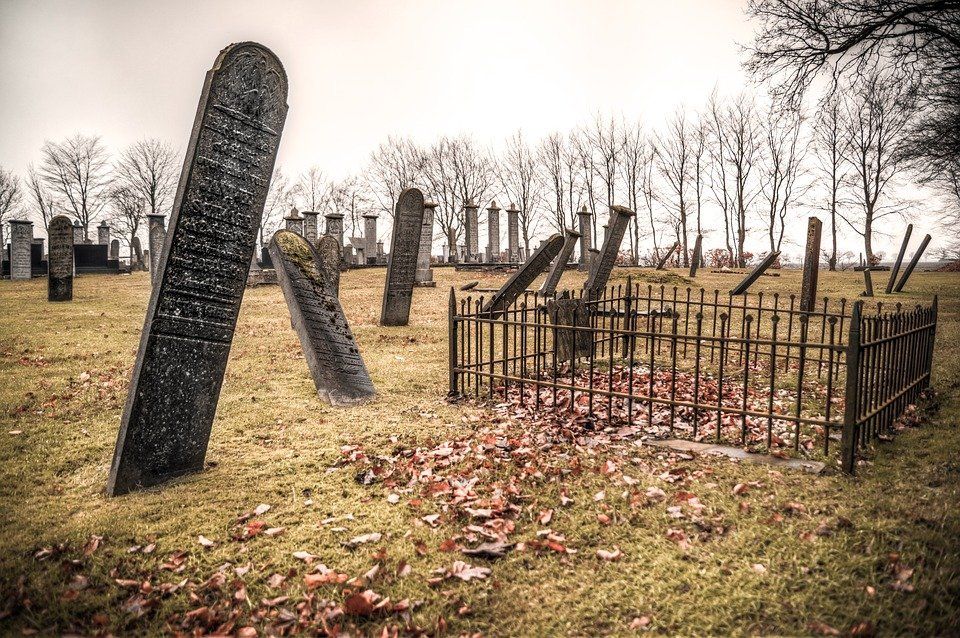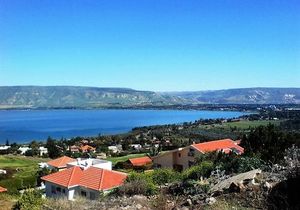Jesus told a story about a rich man and a poor man, which opens a window into the after-life. Two men die. The poor man goes to be with the patriarch Abraham in heaven, but the rich man goes to ‘hades’. A conversation follows between the rich man and Abraham, held across ‘a great gulf’ fixed between them (Luke 16:19-31).
This was, of course, a parable. It is not a video of something that actually happened. There are no actual conversations in eternity between the lost and the redeemed. But it does tell us sober truths about what it will mean if we die unforgiven by God.
Where do you stand?
The story teaches that our circumstances in life are no indication of our standing with God. Inequality is a fact of life in the real world.
The rich man is ‘filthy rich’ and happy. The other man, Lazarus, lives in abject poverty. He has little to be happy about and appears to get no help from God.
The drama of the story is that when they die, there is a great reversal. What are we to make of it all?

Everybody dies
Better face it now! ‘All go to one place’ says Solomon, referring to death (Ecclesiastes 3:20). But death is not about vanishing into non-existence, as some think. Life is short but there is life after death.
The Bible says: ‘it is appointed for men to die once, but after this the judgment’ (Hebrews 9:27). We will all give an account to God for the way we spend our lives (Romans 2:6).
Few object to the idea of heaven, but most people prefer to think there is no ‘hades’, no hell. Yet there is no logic in such a view. If good must be rewarded, then sin must surely be punished. We all face an eternal reckoning.
Riches do not condemn
We need to understand the meaning of Jesus’ parable. It does not teach that our eternal future is determined by whether we are rich or poor in this life. The Bible is quite clear that there is nothing wrong in being rich.
Wealth can be received and used as a blessing from God (Psalm 112:3). The question is how we use our wealth (whether small or great).
What did the rich man do with his riches? He indulged himself and did not lift a finger to help the poor man. Even though Lazarus sat at his very gate, the poor man had to beg even the crumbs from his table.
Why does God give wealth? Answer: ‘that [we] may have something to give him who has need’ (Ephesians 4:28).
Lazarus, then, was the test that exposed the rich man’s heart for what it was – self-centred, self-absorbed, and hardened. He lived for himself. It is no accident that the only person who complains in the parable is the rich man.
Poverty does not save
God is ‘full of compassion and gracious … abundant in mercy’ (Psalm 86:15). He chooses ‘the weak things of the world to put to shame the things that are mighty’ (1 Corinthians 1:27).
But poverty afflicts good and bad alike: ‘As it is with the good man, so it is with the sinner’ (Ecclesiastes 9:2). We know from other Scriptures that Lazarus was saved and went to heaven, not because he was poor, but because God was gracious to him and gave him faith (Ephesians 2:8).
God cares
Lazarus, we read, ‘was carried by the angels to Abraham’s bosom’. This highlights the fact that the poor man was a true ‘child of Abraham’. Like Abraham, he loved and believed God (Galatians 3:6-9).
For the Jews, ‘Abraham’s bosom’ was the figurative (not literal) destination of the redeemed. It speaks of God’s covenant to save his people from their sins.
This he did through the ultimate ‘Seed’ of Abraham, Jesus Christ, who died in the sinner’s place (Galatians 3:16).
The rich man, being a Jew, regarded himself as a child of Abraham: ‘Father Abraham’ he cries. But it is not enough to be physically descended from Abraham; to be saved we must share Abraham’s faith in God.
Whatever his pedigree, the rich man was lost because he loved neither God nor man, but only himself. It is our inward, heart relationship to God that matters, not our outward circumstances. This is Jesus’ great point.
There is only one way to heaven, to reconciliation and eternal fellowship with God. That way is Jesus himself – the one Mediator between God and man (1 Timothy 2:5).
No second chance
In the second part of the story, the scene shifts from time to eternity. Jesus relates a conversation between the rich man and Abraham. The rich man’s tormented soul utters three appeals.
Firstly, he seeks relief. He asks that Lazarus be sent to cool his tongue with water. Was he repentant for behaviour towards Lazarus? Not for a moment! In hades he remains self-centred, expecting Lazarus to wait upon his needs.
In reply, Abraham points out that there is no second chance in eternity. There is ‘a great gulf fixed’ between heaven and hell.There can be no repentance in eternity; it is unnecessary for the saved and impossible for the lost.
Five brothers
If he can’t have the poor man to bring relief for his thirst, the rich man wants something else. Lazarus must become his message-boy to warn his five brothers and save them from a similar fate.
He still treats Lazarus as a beggar. There is no sorrow for past behaviour. Even his concern for his brothers may have been self-serving. Having encouraged them on their path to hell, did he now want to be free of the consequences?
Abraham’s answer is brief and to the point. But it shows us that God’s Word is sufficient for every sinner’s need. ‘They have Moses and the prophets [the Holy Scriptures]; let them hear them’.
How may we be forgiven our sins and fitted for heaven? Jesus answers: ‘not by bread alone, but by every word of God’ (Luke 4:4). Scripture is the mind of God revealed. It is ‘able to make you wise for salvation through faith … in Christ Jesus’ (2 Timothy 3:15). The Bible tells us the way of salvation in Christ.
Are you listening to God?
Repentance
No, says the rich man, God’s words will not be enough! It will take a visible miracle to change my brothers’ attitudes.
So please send Lazarus back as a preacher! If someone rises from the dead they will believe and repent. Signs and wonders seem much more powerful than mere words, even God’s words.
Abraham’s answer is sobering: if people won’t listen to God’s Word, even raising the dead won’t convince them!
And it won’t. Jesus tells us himself that he has given the world exactly one sign – the ‘sign of Jonah’ (Matthew 12:39-41). He was referring to his own death and resurrection, his victory over death and thegrave.
The evidence supporting his physical resurrection is compelling. Anyone who has examined the matter will admit this. More than one sceptical writer has set out to disprove the resurrection of Christ, only to be convinced that it really did happen.
But few turn from their sin and seek forgiveness as a result.
Only one way
But some do. Some believe and are saved. And where does their faith in Christ come from? ‘Faith comes by hearing, and hearing by the word of God’, replies the Bible (Romans 10:17).
The resurrection of Jesus confirms the truth of the Word of God concerning him. But it is the all-sufficient Word that God, by his Holy Spirit, uses to bring lost people from spiritual darkness to light.
God’s Word is sufficient and powerful because it is ‘sharper than any two-edged sword … a discerner of the thoughts and intents of the heart’ (Hebrews 4:12). It is that Word that tells us that Jesus Christ is the only way of salvation.
‘Salvation is found in no one else, for there is no other name under heaven given to men by which we must be saved’ (Acts 4:12).

















